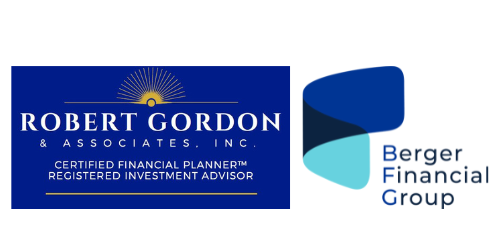What's an Alpha Manager and Why Do I Need One?
Submitted by Robert Gordon & Associates, Inc on February 12th, 2020
You've probably heard of an alpha wolf, but what about an alpha manager? This is the kind of financial adviser that everyone planning an estate should be working with.
Conventional wisdom, common sense and life experience — and maybe chicken farmers, too — tell us, “Don’t put all your eggs in one basket.” It’s an idiom that makes sense, especially in the financial sense, where one bad investment with too much money tied to it can lead to ruin.
The thinking largely goes back to the Great Depression, when families who held their entire fortunes in one bank lost everything when the institution went under. With the subsequent development of FDIC insurance, which covers $250,000 per person, per institution, people spread their estates across multiple banks, as the coverage from a single institution was not enough to cover many families’ assets. Decades later, finances were further diversified with affordable mutual funds and stocks that you didn’t have to buy from some guy in a seedy bar. Suddenly, for boomers and their parents, there were variety of baskets to consider for their eggs.
But too many people take that phrase to a logical, but ultimately misguided, conclusion. When splitting their finances among diverse assets and investments, they’re also dividing their funds among unrelated financial advisers, banks and even hidden accounts and investments.
Often, eggs end up with different managers unintentionally. An inheritance from a parent or grandparent might be invested through a bank, and the beneficiary may have never moved it and coordinated it with their other holdings. Someone may not know what to do with a parent’s 401(k) after they’re gone. Transfer fees may hold someone back from moving funds, and even geography can play a role if the customer moved and left money with their former bank.
The best strategy is, yes, putting your eggs into more than one basket — while using one company or adviser to help you manage it.
Diversifying wealth is made more difficult when those who are hired to manage it aren’t managing all of it. At a minimum, people need what we call an “alpha manager,” a firm or adviser with control over all of a client’s liquid assets, or someone who can at least see what is happening to their client’s money at other institutions.
It might sound like a risk to have one person taking point on these decisions, but from the perspective of retaining professional services to help achieve your financial goals, employing an alpha adviser is the best route forward.
1. You’ll get the full picture
All too often at my firm, we meet prospects who come in with money being managed by three or more advisers or institutions, which they think means they’re diversified. It’s only when we consolidate and compare the allocations of all of their accounts that we can see overlaps, inconsistencies or other risks in their portfolio.
For example, three companies may each manage a third of a person’s assets, and invest the money the same way: $50,000 in an aggressive growth fund, $50,000 in a moderate growth fund and $50,000 in a conservative growth fund. The accounts likely will include investments in the same companies and commodities, too, largely because the managers aren’t communicating with each other. The first time the investments were made, the allocations diversified the client’s risk — but it’s entirely possible that over time the advisers bought the same stuff again and again, diluting the actual diversification of their holdings.
With one manager calling the shots, the full picture is revealed, and money can be efficiently spread out. Still, some people may never be comfortable with one person or institution managing all of their liquid assets. That’s fine, but it remains crucial that the “alpha” can at least see what is happening in the other managers’ or institutions’ accounts, ensuring they aren’t buying more of what the client is already investing in and duplicating positions.
2. Some managers have conflicts
When there’s a lack of communication between advisers and institutions, it’s often because of built-in obstacles. For brick and mortar banks, in particular, compliance barriers restrict advisers from seeing how a customer’s assets are being allocated by other managers or institutions. They are generally prohibited from looking at a client’s entire picture holistically.
Independent wealth managers have no such restrictions. And because they aren’t connected with large banks or insurance companies that make investments, they won’t direct their clients to invest in proprietary funds or purchase affiliated insurance products. A Registered Investment Adviser is an independent fiduciary, either a firm or an individual, required to always provide counsel that is in the best interest of his or her client — this is often the best fit for an “alpha.” They can manage 100% of a client’s liquid assets, and even if the client wants to keep funds in other locations, the alpha adviser will be able to see all of their allocations, which makes identifying risks and opportunities in their aggregate holdings possible.
3. It irons out inefficiencies
Let’s say a client has three managers and needs $100,000 from his accounts in a hurry. Where should he get the money?
If he doesn’t have an alpha manager, there might be a problem. One manager probably won’t know what’s going on in the other two locations where the client has funds. Are there other accounts that would make more sense for the withdrawal? Perhaps drawing from one of those accounts would have a lighter impact on the client’s taxes? Multiple calls or meetings might be needed to figure out the best course of action. Meanwhile, an RIA armed with the full picture of the client’s finances would be able to make an independent and appropriate decision quickly.
Efficiency matters. An alpha manager saves time and money, with fewer meetings, annual fees and tax forms.

